Intuitive Eating Q&A: Part 4

Intuitive Eating is gaining more and more popularity and recognition in the world of nutrition. With more awareness comes more questions and curiosity. Part 4 of this Q&A series addresses more intuitive eating questions about the different types of hunger, how to continue to be successful in your intuitive eating journey, and where exercise fits in with intuitive eating. Check out my answers and tips below!

In Part 1, Part 2, Part 3, and Part 5 of this Q&A series, I addressed topics such as how to deal with cravings, where nutrition fits in intuitive eating, how to stop feeling guilty and so much more. The questions keep coming, which I love! So here is part 4 of the Intuitive Eating Q&A series. If you’ve got other questions please comment below and I’ll include them in an upcoming blog post.
When I find myself wanting a treat in the absence of feelings of biological hunger, how should I respond?
Simple answer: if you feel like you want to eat a certain food, then you should go ahead and eat it. But be intentional with it – intentionally make the choice to eat it and eat it mindfully, noting the taste and how you feel. Tuning in before, during, and after a meal helps makes mind-body connections with food. A common mistake by people just starting intuitive eating is that they feel they should only eat when they have biological signs of hunger. The idea of hunger is multifaceted. There are many reasons we eat including
- Taste Hunger- wanting to eat because the food sounds good or it fits the occasions (i.e. birthday cake at a party)
- Practical Hunger – eating when you may not be physically hungry, but you won’t have access to food later, so you eat to avoid ravenous hunger and feelings of irritability later on
- Emotional hunger – using food as coping mechanisms for uncomfortable feelings (sadness, loneliness, boredom). Emotional eating is okay to do, but it’s important that it’s not your only coping mechanism.
Eating the foods your craving is a big part of making peace with food – you have to give yourself unconditional permission to eat all foods. And for a while that may mean you’re eating them when you’re not hungry. But eventually, as your body learns to trust that you can have them whenever, you will start to find that you’ll crave them less. One other note: I don’t like using the word “treat” to categorize foods, because by value of using that word we’re saying that it’s something we shouldn’t have that often, which makes it more appealing, which makes us want it more AND can make us feel guilty when we “treat” ourselves.
I’ve been practicing intuitive eating for a bit now and have allowed myself to eat whatever I want, but I still find myself having diet-like thoughts that lead to guilt — I feel like I have come so far, how can I ensure I continue to move in the right direction?
Intuitive eating is that it is a process. There is no right or wrong way to do it, and there is no end point. The main thing to remember when diet-like thoughts start creeping up is to approach the thought with curiosity rather than judgment. Instead of running away from this unsettling/uncomfortable feeling, try to reflect and explore ton it some more. Ask yourself questions like:
- What’s going on this week that may be triggering these thoughts to be more present?
- Is anything happening that is making you crave a certain food more than usual?
It’s important to recognize that the reason there is this associated guilt with eating these foods is all due to ideas put in our head by diet culture. Dieting provides external rules about when we can or cannot eat food and it makes us feel like if we don’t follow these rules then we will go crazy and binge or have to make up for what we ate by exercising or restricting foods.
It can sometimes help to reflect back on the past few weeks and note the progress that you have made (I do this with all my clients because it’s super helpful!). Employ some self-compassion here – this is a tough process but with time it becomes easier. The more you practice the principles of intuitive eating the more you will be able to tune into your body every time you eat and eventually, you’ll get to a place where your body will know and trust that you have access to that food and the feeling of always needing to eat the trigger food will get less and less frequent.
I have always associated exercise with the need to lose weight. I feel like if I begin to workout again I will fall back into the diet mentality — is there anyway to apply the principles of intuitive eating to exercise?
Exercise can definitely become a part of your intuitive eating journey. In fact, it’s built into intuitive eating as one of the original principles. Exercise often brings about feelings of anxiety because it is associated with failed attempts at dieting and weight loss. Instead of focusing on external factors like calories burned or weight loss, try to focus on exercise as a means to take care of yourself. Some things to think about regarding exercise:
Does the exercise…
- Improve your overall energy level?
- Promote better sleeping habits?
- Help you cope with emotions/stress?
- Provide a sense of well-being?
Make sure that whatever kind of exercise you choose to do, that you enjoy it! Pick a type of exercise that makes your body feel good, rather than viewing it as a punishment for something you ate. Remove the “all or nothing” mentality and remember that all movement is good for the body and you don’t have to spend hours in the gym to reap the health benefits of exercise. Instead seek out realistic ways to provide regular and joyful movement to your daily life. If you aren’t sure what type of exercise you like, start experimenting with different classes, studios, gyms, instructors, or online videos. You can also check out this blog post on Intuitive Exercise for more thoughts.
Check out the other posts in the Q&A series:
Intuitive Eating Q&A Part 1
Intuitive Eating Q&A Part 2
Intuitive Eating Q&A Part 3
Intuitive Eating Q&A Part 5
Do you still have other questions about intuitive eating? Share below!
Looking for more intuitive eating support?
Check out my Unapologetic Eating 101 Course, an online, self-paced program to liberate yourself from dieting and make peace with food and your body.
My team and I also offer virtual one-on-one support – you can check out our virtual intuitive eating nutrition coaching packages.
My book, Unapologetic Eating: Make Peace with Food and Transform Your Life, is also a great resource that includes information, research, and reflection prompts to help you move away from dieting and come back home to your body, so you can live your most unapologetic, liberated life.
Author Bio
This article was written and reviewed by Alissa Rumsey, MS, RD, CSCS, a registered dietitian and Certified Intuitive Eating Counselor. She specializes in weight-inclusive care, intuitive eating, body image healing, mindfulness, self-compassion, and healing from chronic dieting, disordered eating, and eating disorders. Alissa holds a Bachelor’s Degree in Nutrition and Exercise Science, and a Master’s Degree in Health Communications, and is also an NSCA Certified Strength and Conditioning Specialist.
8 Comments
Leave a Comment
share the love
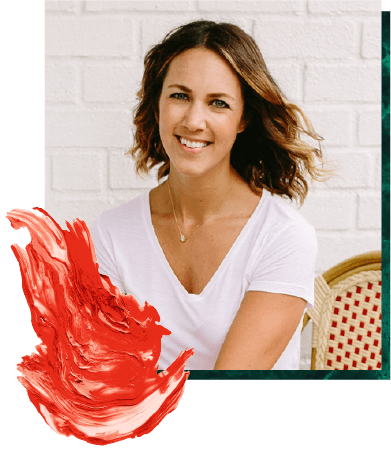
about
Alissa Rumsey, RD.
Alissa Rumsey, MS, RD, CDN, CSCS (pronouns she/her/hers) is a registered
dietitian, nutrition therapist, certified intuitive eating counselor, and the author of
Unapologetic Eating: Make Peace With Food and Transform Your Life. Alissa is
passionate about helping people reclaim the space to eat and live,
unapologetically.
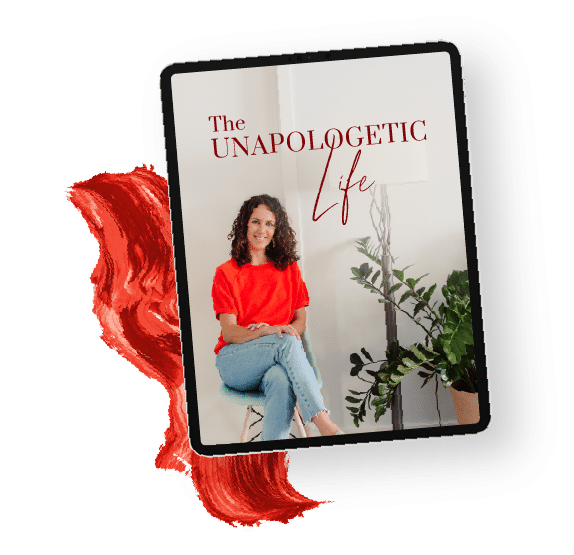
A twice-a-month round-up of inspirational stories, lessons, practical tips and encouragement for living your most authentic, unapologetic life.
The Unapologetic Life
RECENT POSTS
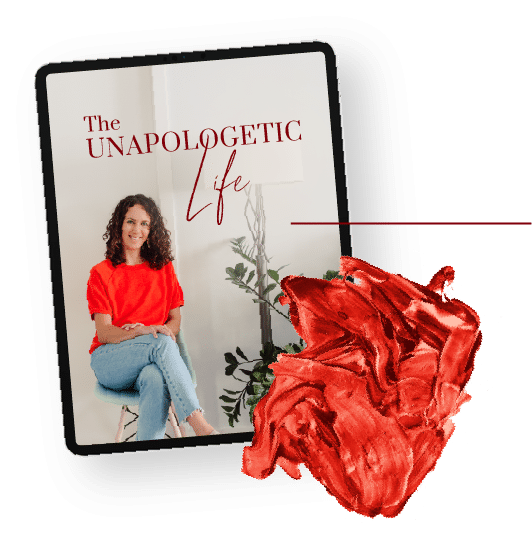
The Unapologetic Life
A twice-a-month round-up of inspirational stories, lessons, practical tips and encouragement for living your most authentic, unapologetic life.






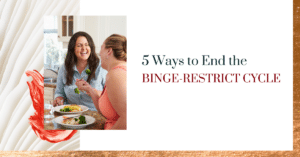
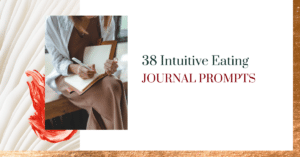
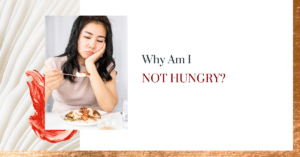
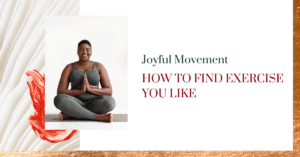
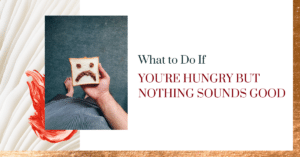
Should weight be restored if one suffers from anorexia before starting intuitive eating? Or can one start intuitive eating right off the bat?
Hi DJ, if someone is still recovering from an eating disorder they should restore their health and nutrition prior to fully practicing intuitive eating.
So how do you know if you’re REALLY hungry, or just emotionally hungry or craving something? I don’t think I really know what real hunger feels like. I mean, I feel hunger pains, that are painful, but disappear after a bite or two, but then come back like 10 minutes later. So do I just eat one bite every ten minutes until satisfied? I want to lose weight, and I’ve tried so many diets that never work longer than a month or two, even if I’m still following it properly. I’d appreciate any advice you can give!
Hi Emily, it can be hard to know what true physical hunger is, especially if you’ve had a history of dieting or ignoring or numbing your hunger. This blog may be helpful: https://alissarumsey.com/nutrition/hunger-fullness-scale/ – using the hunger-fullness scale will, over time, help you explore what hunger really feels like in your body. It takes awhile to really get back in touch with these feelings, so don’t feel discouraged. It may also help to eat regularly throughout the day – i.e. 3 meals and a few snacks. This is important as you work to figure out what hunger feels like/when your body is hungry.
Hello!!
I recently started practicing intuitive eating, but have realized that I’m not actually physically hungry very often. Before, I ate mainly out of boredom or as a coping mechanism for stress, and now that I wait for physical hunger cues I only feel the need to eat a pretty small meal 1-2x/day after which I feel comfortably “full”.
Should I be concerned with this new reduced intake??
Hi Emmy, I can’t give you specific advice without you being a client and knowing more about you. That said, the amount of food you mentioned is very small and does not seem like it would be enough. It may be that your hunger signals have atrophied and so they aren’t really there yet. It’s important to consistently eat 3 meals + a few snacks each day until your hunger signals come back. I’d suggest working with a dietitian to make sure you are meeting your nutrition needs. Let us know if we can help! More info is at http://www.alissarumsey.com/nutrition-coaching
Hi Alissa,
So glad I found your blog. I’m new to this IE tjing. I have been struggling with body issues and dieting since I was in elementary school. Those cultural messages did a number on me. I realized way too much of my time was spent on obsessing over food and what my body looked like. The more I tried to stop the worse it got. I have been doing IF prior to this – for energy and metabolism along with wanting to lose weight, and I think I made it worse (my disordered eating and body obsession). I knew these ideas and behaviors weren’t healthy but it’s so deep.
I’ve only started IE a week or so ago. I know this takes time but It seems like I feel hungry almost ALL the time. I tend to eat small meals and I think (been called a bird eater all my life) I can’t eat enough at once to feed my body enough. I end up getting hungry again an hour or two after eating. It’s inconvenient so I’m starting wanting to ignore those hunger signals even though I know it’s not helpful. Besides physical hunger I get a little light headed or lethargic when I’m hungry. It seems like after an hour I shouldn’t be feeling this way. I couldn’t find anything about this. It’s driving me crazy. It’s probably in my my mind but I feel like I’m spending too much time eating. Maybe my fullness feeling is too sensitive. Idk. Any ideas? Thanks!
Hi Bria, it’s really common to feel an increase in hunger/frequent hunger when you initially stop restricting. Think about it like this: if you hold your breath underwater for a while, when you come up for air you end up gulping big breaths – then eventually your breathing returns to baseline. It’s the same with food – you’re only 1 week into letting go of restrictions, so it’s not surprising to me at all that you’re feeling frequently hungry. Ideally, you would be able to honor that hunger by eating, which is how we build back body trust. Can you find some easy, satiating snacks so that you can eat each time you feel hungry? It may help to work with a dietitian on this too, they can work with you to figure out the hunger/fullness sensations and find foods that work best for your body. If this sounds helpful, I have several dietitians on my team who do this work, you can see more info here: http://www.alissarumsey.com/nutrition-coaching 🙂